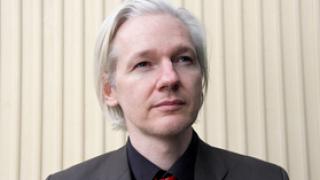
UNA-UK is disappointed by the dismissive language used by UK Government officials in response to a legal opinion issued by a group of UN human rights experts.
On 5 February 2016, the Working Group on Arbitrary Detention (WGAD) declared that it considered Julian Assange to have been “arbitrarily detained” by the UK and Sweden since his arrest in London in December 2010, as a result of the legal action against him by both goverments. The Group concluded that this detention violates two articles of the Universal Declaration on Human Rights, and six articles of the International Covenant on Civil and Political Rights.
The Working Group has no powers of enforcement. Its opinion on this matter constitutes an interpretation of the applicability of international legal instruments to which the UK has voluntarily subscribed. According to Christophe Peschoux from the Office of the High Commissioner for Human Rights:
“The opinion… is legally binding to the extent that it is based on international human rights norms which have been ratified by states, and when a state ratifies a convention – in this case the Convention on Civil and Political Rights – that state has the obligation to implement its provisions.”
The UK Government has said that it will formally contest the Group's opinion. Foreign secretary Philip Hammond commented that it was "a ridiculous finding" and that the working group was “made up of lay-people, not lawyers”. Other ministers took to social media to ridicule the Group.
While the Government is entitled to disagree with the findings, the dismissive language used by senior ministers - particularly in relation to the qualifications of the legal experts involved - risks undermining an important element of the international human rights system: the UN's Special Procedures. These are independent experts who work for the UN without remuneration and investigate human rights issues around the world. Their work contributes greatly to the UN's ability to protect and promote human rights, and the UK has traditionally been a strong supporter of their mandates.
The Working Group is one of these mechanisms. In the past year, the situations it has considered include: trials based on forced confessions in the UAE, detention of activists in Angola and the jailing of a human rights defender in Kazakhstan.
UNA-UK believes that the UK should engage constructively with UN human rights mechanisms, and that it should serve as an example to other states. Unfortunately, this is not the first time that the Government's handling of UN Special Procedures has caused concern.
In 2013, the report of the Special Rapporteur on adequate housing resulted in derogatory rhetoric, including of a personal nature, from government officials and parliamentarians. The following year, the Special Rapporteur on violence against women was heavily criticised after she reported that “despite my repeated requests, a visit to Yarl’s Wood immigration detention centre was not facilitated by the Government, and … access to the Centre was denied, when I tried to visit it independently”.
Both incidents should be considered extremely damaging for the UK, which has itself warned other states regarding non-cooperation with, and measured responses to, UN's Special Procedures.
Former Sri Lanka Defence Secretary Gotabhaya Rajapaksa has already sought to use the situation to influence his country's engagement with UN human rights mechanisms. Pointing to Hammond's comments, he said: "Obviously, the British do not practice what they preach to us here as well as other international forums regularly ... I hope the local media raise this issue with UN High Commissioner for Human Rights [during his visit to Sri Lanka]."
The UK has been the key architect of many international human rights laws and norms - from the agreement of the Magna Carta in 1215 to the creation of the Universal Declaration of Human Rights in 1948. To strengthen its ability to act as a leader in upholding the rules-based international order, UK should not undermine UN human rights mechanisms and should set an example to others in how it responds to criticism of its own human rights record.
Click here to read UNA-UK's analysis of human rights protections in the UK
Photo by Espen Moe/CC




